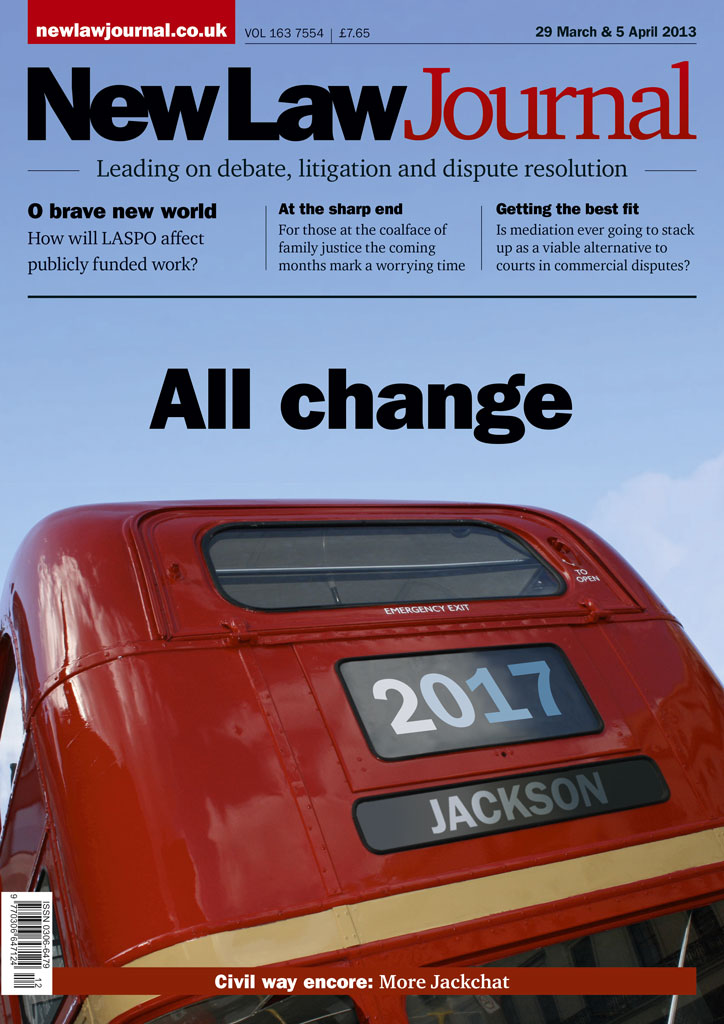
Dominic Regan reports on Lord Justice Jackson’s fixed costs finale
As suggested here 18 months ago, Lord Justice Jackson has come up with a fixed costs model that would broadly apply to cases worth up to £100,000. This is less than half of his opening £250,000 gambit (see ‘Review of Civil Litigation Costs: Supplemental Report—Fixed Recoverable Costs by Lord Justice Jackson’, 31 July 2017).
The superficial attraction of a single set scale of costs has sensibly been jettisoned. Instead, within the proposed new intermediate track there would be four levels of costs, ascending with complexity. Such a nuanced approach is again admirable although I can confidently predict interesting skirmishes over track allocation. ‘Balkanisation’ is more likely to match effort with reward. It is to his credit that Sir Rupert took on board criticism of the ‘one-size-fits-all’ mantra.
Another criticism which he has accepted is that some actions might be worth no more than £100,000 yet could be fiendishly complex. A case estimated









